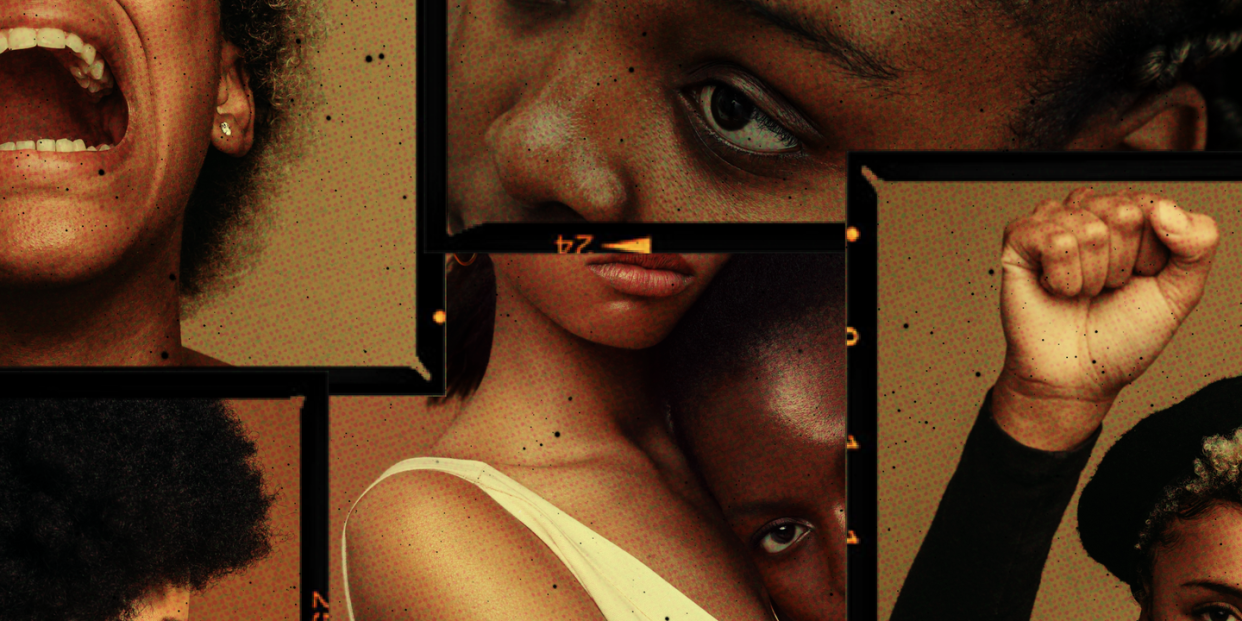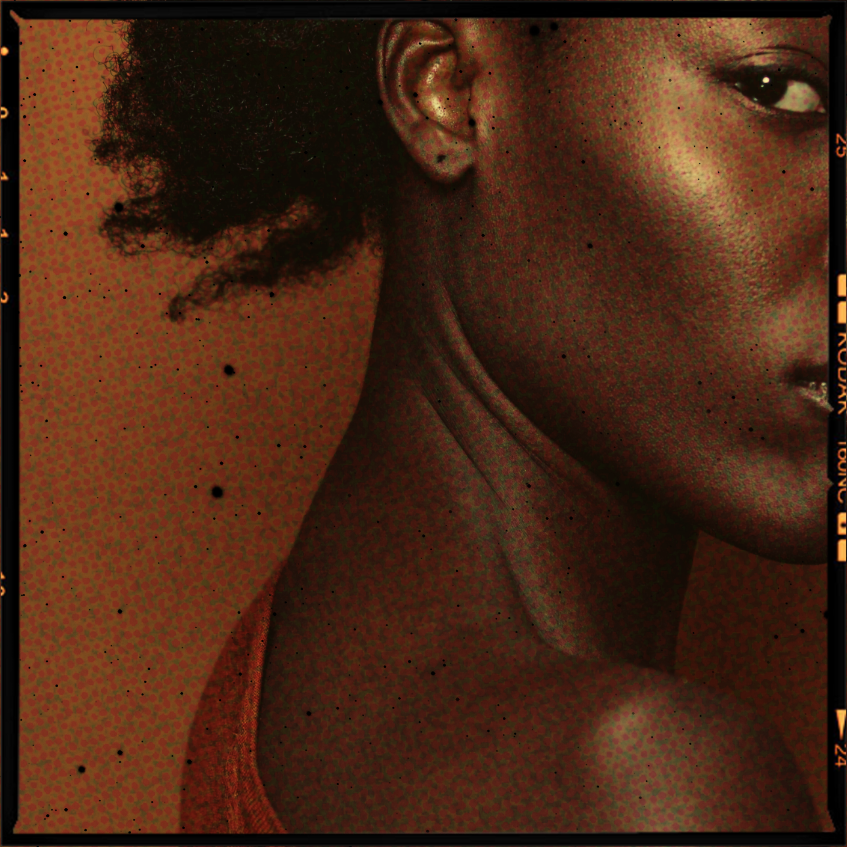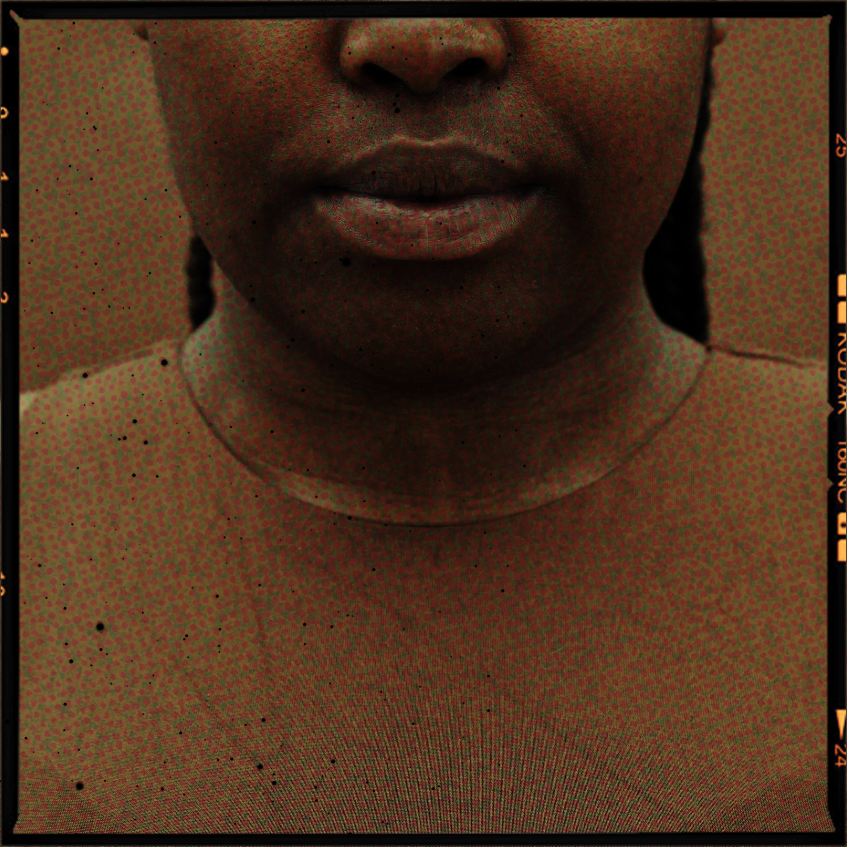How to cope if you're a Black woman and the last year has left you exhausted

It’s time for a check in! Black women - how are you feeling? Before you answer, I want you to understand that I don't mean in the reflexive ‘finethankyouhowareyou’? kind of way we’ve all come to rely on, as we continue to live through the relentless chaos of whatever this weeks’ ‘unprecedented, once in a generation’ events are. ‘Finethankyouhowareyou’? might be enough for most people, most of the time, but I want something deeper. I want you to do what we so rarely give ourselves the time and luxury of doing - that is to look inside of yourself and really explore; open doors, rummage around, look beneath the surface, and then, really tell me. How are you feeling?
In my experience, as an author, speaker, equalities consultant and advocate, we’re so rarely asked the question that the answer can be hard to find, even for ourselves. And it’s really no surprise. I know that for myself, I’m usually so busy getting on with things, and keeping on keeping on, that a lot of the time, if anything, I’m trying as hard as I can not to look too far beneath the surface, not to break the veneer, and to stay as far away from the real answer to that question as possible.
And who can blame us? There is plenty for us to not be quite ‘finethankyou’ about.
How does your heart feel?
Mine is heavy in the knowledge that the fights that our parents fought, and theirs before them, are still not won. That time after time we have to take to the streets, holding up placards, and one another, as we protest the brutality that Black bodies are subject to every day, all too often at the hands of the police - the people who we should be able to turn to for safety and protection.
People who don’t experience this do not know the pain or the exhaustion of once again sorting through their marker pens, going through the recycling bin for supplies of cardboard big enough to make another protest sign, with another new name that we never should have had to learn and say en masse, emblazoned on it, then putting on their shoes, finding their coats, and taking to the streets to say, "Please, I’d like to be allowed to be a person. I’d like to be safe. Is that ok with you?"
Chris Kaba should be alive today. But he’s not because he was shot to death by police in London. Just as we all felt it when George Floyd called for his mother in the final moments of his life, the ripple of Chris Kaba’s pain and loss is felt far and wide.

How does your body feel?
I hope it is well, but chances are it isn’t. A study recently published showed that the majority of Black people in the UK are discriminated against, because of their race, by medical professionals. The vast majority, in fact; 75% of those aged 18-34, and 65% of all Black people in Britain. That’s staggering. And yet, not surprising - chances are if you’re a Black woman the compounding impact of your Blackness and your womanness has created misogynoir in even your most basic and routine experiences in accessing healthcare, and so I doubt that you’ll be surprised. If anything, maybe there’s even a comfort in knowing that it’s not just you, you’re not doing something wrong. Or maybe that makes it worse - personally, I can’t tell yet.
How does your stomach feel?
Mine has been turning over, seeing the public reaction and response to Meghan Markle during the past few weeks since the death of Queen Elizabeth II and her public funeral. The comments, the coverage, the picking, the endless commentary that is so frequently grounded in racism and prejudice is enough to get anyone down.
How’s your bank account looking?
Do you feel satisfied that you’re being paid fairly for your work? Most of the data available about the intersectional pay gap (a pay gap that looks at the impact of both race and gender) comes from the US, since in the UK there is only the legal requirement for businesses to report gender based gaps, and even this was paused in 2020 as a result of Covid. But if we look at the US data, we can get a good idea of the landscape that we have in common.
The gender pay gap means that American women, on average, get paid 82c for every dollar that white men are paid in the US, and if the gap continues to close at its current rate, women won’t achieve pay parity with men until 2053. But when we add race to the gender conversation, the race and gender pay gap widens even further, to a rate of 58 cents for every dollar for the average Black woman. A 42% pay gap between Black women and white men, and a gap of 21% between Black and white women, which means that Black women will need to wait (work) until 2130 to achieve pay parity. On individual terms, over a 40 year career that loss of 42 cents on every dollar really adds up, making an average career-long loss of almost a million dollars, due to nothing more than being both Black and female.
It might feel like a left turn to talk about money, but trust me, it isn’t. Talk about money every chance you get. Being paid fairly, and equally, means more than the number in your bank account or on your payslip. It means the opportunity to save, to invest, to build for the future and create the generational wealth that has been missing for so many of us. It means being able to fix a car with a flat tire instead of missing a day of work, and it means that minor inconveniences don’t need to become major disasters. It means having the resources to leave a job, a marriage, or a relationship that doesn't value you properly. It means safety and security in a world where that can feel hard to come by.
It means being valued, and I want you to know just how valuable you truly are.
Of course, we are all individuals, and we are all feeling things that are unique to us. And, right now, those feelings are most probably swirling around in a big, overwhelming mess. But don’t worry - we can do something about that.
Here's how to cope if you’ve been feeling overwhelmed about the events of the past year:
Set boundaries
In the past few years, sincef the world has begun to recognise the injustices of inequity and racism that we've been shouting about for years, many of us have found ourselves being asked a lot of questions - and being expected to educate others about our experiences, anti-racism, and allyship. People are curious - they’ve been told to listen to Black voices, so they’re buying books by Black authors and following Black content creators, but they’re also turning to their Black friends for guidance. They mean well, most of the time, but having someone send you a picture of a yet another dying Black body, or being asked to relive your personal trauma for the education of a non-Black friend, whilst someone with no skin in the game ‘plays’ devil’s advocate, is exhausting and emotionally draining.
So set boundaries. Tell people you don’t want to see videos or posts of violence being committed against bodies that look like yours and the people you love. Remind people that they have the same access to Google that you do - and they’re very welcome to use it to answer all of their burning questions without putting the burden onto your shoulders. Personally, I can’t count the number of DM’s I’ve received from strangers asking what the word allyship means - a process that’s much longer than just putting the word into Google and reading the first result. And much more fruitful, because whilst Google will take the time to tell you, I will not. Not any more, at least.
When I first started getting messages I tried to respond to each and every one with a personal reply - which was incredibly overwhelming and basically meant I didn’t sleep for several weeks. Eventually, I had to understand that I simply couldn’t take on that burden, and I definitely couldn’t respond to any more of the thousands of DM’s that were flooding in every day. So I stopped, and so can you.
Remind people we’re not their teachers, or their sounding boards. We’re people who are already tired and don’t need to take on the added burden of their education.

Make space for Black joy
In the wake of the last few years of Black Lives Matter protests I’ve never seen more images of Black people on my feeds and timeline. And whilst that sounds great, the thing is - they’re mostly either dead, dying, or fighting for their right to live.
Our feeds can become echo chambers of sadness, and so especially when times are tough, and things feel never ending and overwhelming, it’s important to make sure that we are consciously making room for Black joy. In the wake of George Floyd’s death, I remember looking at a thread of Black people laughing together. Just being silly. They’re singing, they’re joking, they’re laughing. It. Felt. Amazing. I realised that it’s been a long time since I’ve seen us just being carefree.
Create space for Black joy in your day. Every day. Your own, and others. If you need a boost, I’d suggest trying the Best Friends podcast for pure, silly, Black friendship, or putting Beyonce’s Renaissance on, loud, and just letting your body move. Look at the #blackjoy hashtag on Instagram, follow Zebabley on Instagram and let her Sunday moodboards find a home in your soul. Say your affirmations in the mirror as though you’re the young Black girl you’d like to protect. Frolic. Touch grass It will do you the world of good.
Find workplace allies
A lot of people have asked me over the past few years how to raise conversations with difficult bosses, or in hostile workplaces. To that I always say - where possible, use your allies. People hate the suggestion that anything they’ve done is racist, or that the system that they are part of is based on, and benefits from structural racism - as most large companies do. They especially hate it when a Black or Global Majority person brings it up. Their response is usually to become defensive, closed off, or even worse to start crying, which quickly reframes you as a difficult person, or even a bully, for calling out structures simply not designed to benefit you, or even to actively hold you back.
As we’ve seen in several examples over the past few years - when people come together to raise and amplify the voices and experiences of their marginalised colleagues, it's possible to make real change at the highest levels.
Speak to friends at work about the issues that you’re facing. As we’ve seen in these past two years of awakening amongst non-racially marginalised people, many have been blind (sometimes willfully) to the systems that lift them up whilst holding non-white people down until now. Ask them to come to meetings with you, sign letters, stand in solidarity, and push your employer to pledge to make tangible change - and keep them accountable for following through in the upcoming weeks and months.
Together we can achieve so much more than alone. Like Rihanna said - tell your friends to pull up.
Rest
You are worth more than the sum of your output. Stereotypes like the 'Strong Black Woman', and the growth of rise and grind culture mean that as Black women we can often feel that if we’re not producing we’re wasting time, which can be a huge strain on our mental health. This need to always be active, prove my worth, grind and hustle is something I subconsciously struggled with for years, and still haven’t been able to fully move away from to this day.
My advice?
Stop.
Rest.
Walk.
Breathe.
You need it. We all need it. And you deserve it. Deeply. Always.
For additional support and information on mental health issues, visit Mind.org.uk
By request, Sophie's fee for this article was donated to The Trevor Project, in appreciation of their work supporting Black LGBT youth mental health.
You Might Also Like


